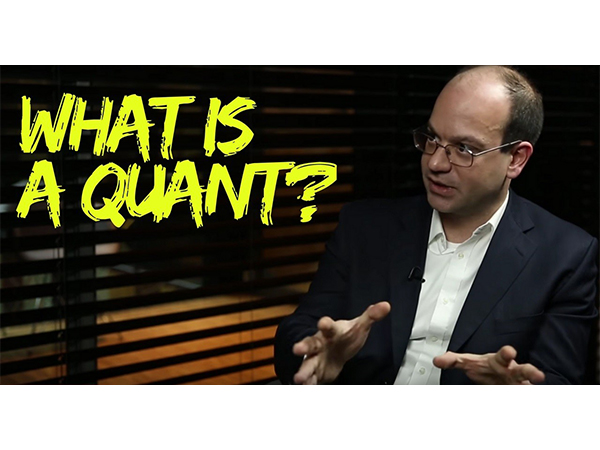VMPL
New Delhi [India], April 1: The world of quantitative finance, particularly algorithmic trading, continues to evolve at a breakneck pace. As we approach 2025, the demand for skilled quants remains high, driven by the increasing sophistication of financial markets and the proliferation of data. If you’re looking to break into this exciting and lucrative field, understanding the current landscape and developing the right skillset is crucial.
What is a Quant, and Why Are They in Demand?
First, let’s address the fundamental question: what is a quant? In essence, a quantitative analyst, or quant, uses mathematical and statistical models to analyze financial markets, develop trading strategies, and manage risk. They are the architects behind algorithmic trading systems, leveraging their expertise to identify patterns and predict market movements.
The demand for quants stems from the growing reliance on data-driven decision-making in finance. Modern trading firms, especially hft companies, heavily invest in technology and talent to gain a competitive edge. This has created a surge in demand for individuals who can not only understand complex financial concepts but also translate them into effective trading algorithms.
The Evolving Landscape of Algorithmic Trading
Several key trends are shaping the future of algorithmic trading:
* Artificial Intelligence and Machine Learning: AI and machine learning are increasingly integrated into trading strategies, enabling quants to analyze vast datasets and identify subtle patterns that traditional methods might miss.
* Alternative Data: The use of alternative data sources, such as satellite imagery, social media sentiment, and credit card transactions, is becoming more common, providing quants with unique insights into market dynamics.
* Cloud Computing and Distributed Systems: The scalability and efficiency of cloud computing are essential for processing the massive amounts of data required for algorithmic trading.
* Increased Regulatory Scrutiny: As algorithmic trading becomes more prevalent, regulators are paying closer attention, requiring quants to have a strong understanding of compliance and risk management.
Key Skills for Aspiring Quants
To succeed in this competitive field, you’ll need a combination of technical and financial skills:
* Strong Mathematical and Statistical Foundation: A solid understanding of calculus, linear algebra, probability, and statistics is essential.
* Programming Proficiency: Expertise in programming languages like Python, C++, and R is crucial for developing and implementing trading algorithms.
* Financial Market Knowledge: A deep understanding of financial instruments, market microstructure, and trading strategies is vital.
* Data Analysis and Machine Learning: Familiarity with data analysis techniques and machine learning algorithms is increasingly important.
* Communication and Problem-Solving Skills: Quants need to be able to communicate complex ideas effectively and solve challenging problems under pressure.
How to Break into the Field
Here’s a roadmap to help you navigate your journey:
1. Education: Pursue a degree in a quantitative field, such as mathematics, statistics, computer science, or financial engineering.
2. Develop Programming Skills: Master Python and other relevant programming languages.
3. Gain Financial Knowledge: Take courses or read books on financial markets and trading strategies.
4. Build a Portfolio: Develop your own trading algorithms or contribute to open-source projects.
5. Network: Attend industry events and connect with professionals in the field.
6. Consider an Algorithmic Trading Course: Enrolling in an algorithmic trading course can provide you with focused training and practical experience.
7. Target the Right Companies: Research and apply to firms that specialize in algorithmic trading, including hft companies.
Looking Ahead
The future of algorithmic trading is bright, and the demand for skilled quants will continue to grow. By developing the right skills and pursuing the right opportunities, you can carve out a successful career in this dynamic and rewarding field. As technology evolves and the market becomes more complex, the role of a quant will continue to be vital to the success of financial institutions.
(ADVERTORIAL DISCLAIMER: The above press release has been provided by VMPL. ANI will not be responsible in any way for the content of the same)
Disclaimer: This story is auto-generated from a syndicated feed of ANI; only the image & headline may have been reworked by News Services Division of World News Network Inc Ltd and Palghar News and Pune News and World News
HINDI, MARATHI, GUJARATI, TAMIL, TELUGU, BENGALI, KANNADA, ORIYA, PUNJABI, URDU, MALAYALAM
For more details and packages













